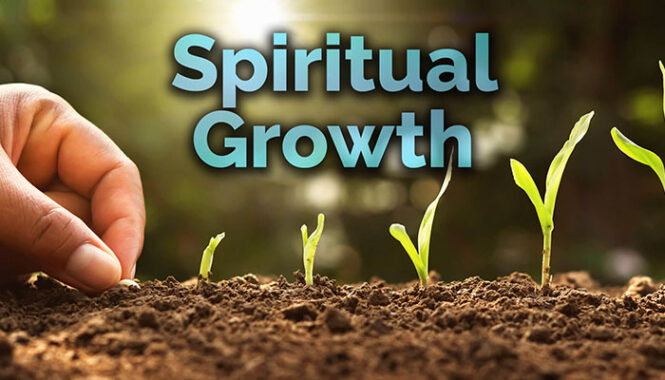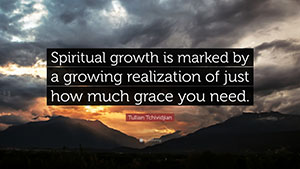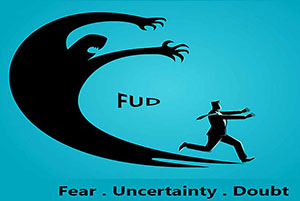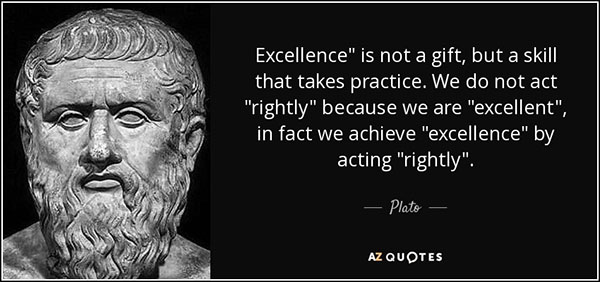
One dragon constantly rearing its ugly head within the Body of Christ these days is spiritual immaturity. Anyone encountering the abysmal quality of social-media discourse regarding any aspect of Christianity will agree my statement is absolutely true. There, I have both witnessed and experienced some of the most vile abuse ever uttered by those proclaiming themselves to be Christians against their fellow believers. This is a blight on our witness of Christ to the world. Here I am digressing before I even got rolling good! Oops! 😀
As the title states, we’re going to take a long, hard look at this topic. We will explore:
- What exactly is spiritual maturity?
- What does it look like so we’ll recognize it when we see it?
- What are God’s tools for bring it to pass in the lives of Christ-followers?
- How do we use employ all these to diagnose whether we have any of it?
Our foundational passage for this discussion is almost the entirety of Ephesians 4:
I, therefore, the prisoner of the Lord, beseech you to walk worthy of the calling with which you were called, with all lowliness and gentleness, with longsuffering, bearing with one another in love, endeavoring to keep the unity of the Spirit in the bond of peace. There is one body and one Spirit, just as you were called in one hope of your calling; one Lord, one faith, one baptism; one God and Father of all, who is above all, and through all, and in you all…
…And He Himself gave some to be apostles, some prophets, some evangelists, and some pastors and teachers, for the equipping of the saints for the work of ministry, for the edifying of the body of Christ, till we all come to the unity of the faith and of the knowledge of the Son of God, to a perfect man, to the measure of the stature of the fullness of Christ; that we should no longer be children, tossed to and fro and carried about with every wind of doctrine, by the trickery of men, in the cunning craftiness of deceitful plotting, but, speaking the truth in love, may grow up in all things into Him who is the Head — Christ — from whom the whole body, joined and knit together by what every joint supplies, according to the effective working by which every part does its share, causes growth of the body for the edifying of itself in love.
This I say, therefore, and testify in the Lord, that you should no longer walk as the rest of the Gentiles walk, in the futility of their mind, having their understanding darkened, being alienated from the life of God, because of the ignorance that is in them, because of the blindness of their heart; who, being past feeling, have given themselves over to lewdness, to work all uncleanness with greediness.
But you have not so learned Christ, if indeed you have heard Him and have been taught by Him, as the truth is in Jesus: that you put off, concerning your former conduct, the old man which grows corrupt according to the deceitful lusts, and be renewed in the spirit of your mind, and that you put on the new man which was created according to God, in true righteousness and holiness.
Therefore, putting away lying, “Let each one of you speak truth with his neighbor,” for we are members of one another. “Be angry, and do not sin”: do not let the sun go down on your wrath, nor give place to the devil. Let him who stole steal no longer, but rather let him labor, working with his hands what is good, that he may have something to give him who has need. Let no corrupt word proceed out of your mouth, but what is good for necessary edification, that it may impart grace to the hearers. And do not grieve the Holy Spirit of God, by whom you were sealed for the day of redemption. Let all bitterness, wrath, anger, clamor, and evil speaking be put away from you, with all malice. And be kind to one another, tenderhearted, forgiving one another, even as God in Christ forgave you.
Ephesians 4:1-6,11-32
What is Spiritual Maturity?
In a word: Christ-likeness. The more spiritually mature we are, the more we look like Him in our thoughts, words, and behaviors, Not only that, but how graciously and lovingly we respond to the challenges we all face as human beings also increasingly reflects His character. Those challenges include the entire panoply of negative experiences inherent to a human being relating to other human beings. Among others, they include:

- Folks who are rude and obnoxious to us
- People who are hostile and antagonistic toward us
- Those who disagree with us on any given topic, especially doctrinally
- Individuals who abuse, hurt, and betray us
- Persons who falsely accuse us
- Those both within and outside Christendom (the organizational expression of Christianity in the earth) who revile and persecute us for the cause of Christ
Spiritually mature Christ-followers have invested the time and effort to press into a vital love relationship with our Heavenly Father. Such believers are sensitive to the voice and promptings of the Holy Spirit and obey Him quickly, accurately, and thoroughly. They are fruitful for God’s Kingdom, bearing testimony of the God’s goodness, regardless of what kind of circumstances they find themselves in.
What Does Spiritual Maturity Look Like
The attributes of spiritual maturity listed in our Ephesians passage are these:
- We are lowly and gentle.
- We are longsuffering, bearing with one another in love.
- We remain teachable, allowing God’s ministers to speak encouragement and correction into our lives.
- We endeavor to keep the unity of the Spirit in the bond of peace.
- We are not tossed to and fro and carried about with every wind of doctrine.
- We are not fooled by the trickery of men in their cunning craftiness of deceitful plotting.
- We are growing up in all things in Christ.
- We edify others in love.
- We do not walk as the rest of the world walks, in the futility of their mind, having their understanding darkened, being alienated from the life of God, because of the ignorance that is in them.
- We are not blind in our hearts.
- We have pliable hearts and are sensitive to the dealings of the Holy Spirit.
- We are not given over to lewdness and other sexual sin.
- We are not greedy or habitually practicing other sins.
- We are putting off our “old man” with its former conduct.
- We are putting on the new man created according to God, demonstrating true righteousness and holiness.
- We do not lie.
- We lovingly speak the truth to others.
- We process our anger righteously, not allowing the sun to go down without reconciliation.
- We do not give place to the devil.
- We eschew theft and work with our hands to do what is good, so we can bless folks in need.
- We allow no corrupt word to proceed out of our mouths.
- We speak only what is edifying, that it may impart grace to the hearers.
- We do not grieve the Holy Spirit. It is safe to define this as not saying anything contrary to God’s Word or agape love.
- We put away all bitterness, wrath, anger, clamor, evil speaking, and malice.
- We are kind to one another, tenderhearted, forgiving one another, even as God in Christ forgave us.

How is Spiritual Maturity Developed
You will frequently hear the idiom “glory to glory” declared from platforms and pulpits in Word of Faith (WoF) and revival circles. It rarely fails to fill the air with excitement because victory is simply too cool for school! There have even been several worship songs repeating that phrase over the last 40-or-so years. Here’s a recent example:
We go from glory to glory to glory.
We’ll never be the same, never be the same!
And You take us higher and higher and higher.
We’re forever changed, forever changed!
Final chorus from Glory to Glory by Bethel Music
The phrase comes from Pauls second letter to the church at Corinth:
Nevertheless when one turns to the Lord, the veil is taken away. Now the Lord is the Spirit; and where the Spirit of the Lord is, there is liberty. But we all, with unveiled face, beholding as in a mirror the glory of the Lord, are being transformed into the same image from glory to glory , just as by the Spirit of the Lord.
2 Corinthians 3:16-18
Both our spirit-man and our flesh alike dearly love this concept. That being said, there is nothing inherently wrong with these songs or that phrase; it just doesn’t tell us, as Paul Harvey used to say, “the rest of the story.”
Tragically, few of believers have bothered digging into our Bibles sufficiently to grasp what “glory to glory” truly implies. The result is we tend to assume a Pollyanna attitude, misinterpreting it to mean “things are great and they’re only going to get better.” However, when the cold, cruel reality of life later kicks in, handing us its inevitable disappointments and tragedies, immature believers tend to get so discouraged and/or disgruntled, they are seriously tempted to walk away from Jesus saying, “It doesn’t work!”
The point of failure here is they do not realize that for every victory to be celebrated there must first be a battle to be fought — and far more importantly — won.
 God uses such battles to grow us spiritually because we learn from them — or at least that’s what is supposed to be happening. Win, lose, or draw, there are always Holy-Spirit lessons to be absorbed, biblical precepts to be assimilated, a deeper understanding of His ways and methods to be grasped, and/or typically one or more mistakes to be avoided in the future. The one constant anchoring us during this whole process is God expressing Himself both through His Word and by His Spirit. There, He reveals His goodness, mercy and love, imparts His freedom, and demonstrates His faithfulness to His promises. And His Word repeatedly assures us of ultimate victory.
God uses such battles to grow us spiritually because we learn from them — or at least that’s what is supposed to be happening. Win, lose, or draw, there are always Holy-Spirit lessons to be absorbed, biblical precepts to be assimilated, a deeper understanding of His ways and methods to be grasped, and/or typically one or more mistakes to be avoided in the future. The one constant anchoring us during this whole process is God expressing Himself both through His Word and by His Spirit. There, He reveals His goodness, mercy and love, imparts His freedom, and demonstrates His faithfulness to His promises. And His Word repeatedly assures us of ultimate victory.
When faced with such challenges, mature Christ-followers dig into His Word, pray, and worship, seeking His wisdom and listening for His voice. When He speaks, they trust and obey, regardless of the personal cost or what their mind, emotions, and circumstances may be screaming at them.
Eventually, victory comes. Voilá! Glory!
Those failing to engage in that process, whether through ignorance or a stubborn refusal to submit to His Lordship and do things His way, generally fall flat on their faces. They are then relegated to “lapping Mount Sinai,” facing the same lesson over and over again with the Lord upping the ante with each lap until they finally come to a point of surrender (see the children of Israel in the last 4 books of the Pentateuch for a prime example of this).
Been there, done that, got a closet full of T-shirts, and shelves full of cheap souvenirs. Hear the voice of bitter experience: repeatedly lapping Mount Sinai is a distinctly unpleasant form of divine tourism!
FUD
 The ultimate lesson to be learned in every challenge we confront can be boiled down to one phrase: trust and obey God. That includes doing things His way in His timing where He commands us to do them while exhibiting the proper attitude and motivation, specifically humble surrender to Him and self-sacrificing love towards our fellow human beings.
The ultimate lesson to be learned in every challenge we confront can be boiled down to one phrase: trust and obey God. That includes doing things His way in His timing where He commands us to do them while exhibiting the proper attitude and motivation, specifically humble surrender to Him and self-sacrificing love towards our fellow human beings.
Demonic resistance to that singular goal defines the obstacle we must then face and overcome. The enemy’s primary weapon is FUD, an acronym for “Fear, Uncertainty, and Doubt.” FUD defines those valleys we encounter between those peaks of glory we discussed earlier. In Psalm 23, David described those low places as “the valley of the shadow of death.” A goodly number of his psalms detail his discussions with the Almighty about those valleys.
FUD is usually triggered by an evil report regarding some issue which concerns us, whether that be ill health, financial lack, family problems, employment challenges, or, in some cases, actual persecution for righteousness sake. Far more frequently, FUD is not so much generated by actual negative circumstances, but instead by our worrying about their possible occurrence at some time in the future. Just saying…😉
Satan’s temptation always attacks on one or more of three vectors. He repeatedly calls into question:
- The will of God (“Did God indeed say…?” see Genesis 3:1)
- The goodness of God (“God’s holding out on you!” see Genesis 3:5)
- Your identity as a Christ-follower (“If you were really a child of God, you’d…” see Matthew 4:3)
Regardless of its cause, FUD is an inevitable and inescapable fact of life on this planet. This forces us as Christ-followers to re-examine our spiritual hole-card whenever that effluent inevitably hits the oscillating air circulation device. Do we:
- Respond in faith in God’s promises, reaffirming He is good (see Psalm 145:9), His grace is more than enough for us (see 2 Corinthians 12:9), we will emerge victorious (see 1 Corinthians 15:57), and He always leads us in triumph (see 2 Corinthians 2:14), or;
- React in fear and unbelief, declaring the circumstances we face are beyond God’s willingness or ability to resolve, thereby resigning ourselves to ignominious defeat, discouragement, and another lap around that dreadful mountain.
Overcoming FUD
While what I’m about to describe will not prevent FUD, it absolutely will tend to minimize its impact upon our lives and help us overcome it. In the Gospel of John, during Jesus’ final major discourse to His disciples the night before His crucifixion, He stated the following:
Abide in Me, and I in you. As the branch cannot bear fruit of itself, unless it abides in the vine, neither can you, unless you abide in Me. I am the vine, you are the branches. He who abides in Me, and I in him, bears much fruit; for without Me you can do nothing.
John 15:4-5
 One of our major failings as Christ-followers is a tendency for us to attempt fruit-bearing using our own efforts and strength. In other words, we accept God’s grace by faith when we first receive salvation and then in effect tell Jesus, “OK, Lord, hold my beer. I’ve got this!” when approaching our lives thereafter. As a result, we take on the Christian life as a system of do’s and don’ts we try our best to live up to.
One of our major failings as Christ-followers is a tendency for us to attempt fruit-bearing using our own efforts and strength. In other words, we accept God’s grace by faith when we first receive salvation and then in effect tell Jesus, “OK, Lord, hold my beer. I’ve got this!” when approaching our lives thereafter. As a result, we take on the Christian life as a system of do’s and don’ts we try our best to live up to.
That approach defines man’s religion, a system of “fig leaves” (aka dead religious works). In our sin-warped thinking, we incorrectly assume we are trying to placate an unappeasable God who is rather ticked off at us for our failures.
The reality of the situation is God loves us and has “provided everything we need for life and godliness” (see 2 Peter 1:2). By appropriating “His great and precious promises, we escape the corruption which is in the world through lust.” From there, we approach our ongoing Christian lives with the same humble submission we exhibited when we went to Him for salvation in the first place.
To receive salvation — along with all the privileges, benefits, and responsibilities that entails:
- We admitted we were incapable of meeting God’s standards or improving on that situation using our own strength and confessed we deserved nothing but hell;
- We accepted by faith God’s free gift of life in Christ Jesus
- We reckoned the completed work of the Cross and Jesus’ resurrection from the dead as completely sufficient to remove both the guilt of all our sins as well as the power of sin itself.
- We surrendered to Jesus as the Lord and Master of our lives.
That doesn’t change after we have received the New Birth; it remains our foundation for the rest of our lives this side of glory. So when addressing our walk with God, we should — in the words of Paul — be adopting the attitude of:
I have been crucified with Christ; it is no longer I who live, but Christ lives in me; and the life which I now live in the flesh I live by faith in the Son of God, who loved me and gave Himself for me.
Galatians 2:20Likewise you also, reckon yourselves to be dead indeed to sin, but alive to God in Christ Jesus our Lord.
Romans 6:11
When taken in its greater context, this attitude implies we abandon our vain attempts to please God through our dead religious works and replaces them with our ongoing dedication to allow God to operate in and through us as we reckon ourselves dead to sin and trust in Him.
So what constitutes “abiding in the Vine,” what does it look like, and how will we know when we are doing it successfully? Funny you should ask, I was just about to tell you that, too! 😀
The Spiritual Disciplines
 I can hear the groans and griping now: “Oh, you mean praying and reading the Bible and stuff! I tried all that and it didn’t work for me.” Tragically, many believers actually have that same attitude towards what we know we should be doing as Christ-followers. We relegate those kinds of activities to ministers, monks, and other garden-variety spiritual over-achievers, but for the likes of us pew-warmers? I don’t think so! As a result, we tend to regard such folks the same way morbidly obese people view skinny health fanatics who eat organic broccoli, spinach, kale, and other “healthy” foods, do aerobics, lift weights, or run marathons for the shear fun of it all.
I can hear the groans and griping now: “Oh, you mean praying and reading the Bible and stuff! I tried all that and it didn’t work for me.” Tragically, many believers actually have that same attitude towards what we know we should be doing as Christ-followers. We relegate those kinds of activities to ministers, monks, and other garden-variety spiritual over-achievers, but for the likes of us pew-warmers? I don’t think so! As a result, we tend to regard such folks the same way morbidly obese people view skinny health fanatics who eat organic broccoli, spinach, kale, and other “healthy” foods, do aerobics, lift weights, or run marathons for the shear fun of it all.
When you view the spiritual disciplines in that light, yes indeed they become onerous dead religious works. Why? Because we are approaching them with the wrong attitudes and motives. When we do this, we are assuming these are things required to please God and earn His favor, so those disciplines start looking a lot like “thou shalts,” “thou shalt nots.” In other words, the law. When we fail to meet those standards of the “shouldas” and “oughtas,” we then experience the guilt, shame, and condemnation Satan is sure to bring us for failing to “measure up.”
The problem is this: guilt and shame are terrible motivators. Point-of-fact: God never uses them to motivate us. Don’t believe me? Check this out:
Or do you despise the riches of His goodness, forbearance, and longsuffering, not knowing that the goodness of God leads you to repentance? Romans 2:4
Overachievers vs. Underachievers
The world divides everyone into 2 groups:
- Those who divide the world into 2 groups, and;
- Those who don’t. 😀
 All seriousness aside, though, psychologically speaking, how we human beings respond to our fallen state and unmet need for a Savior bins us into one of the two groups I just listed in the subhead above. Those who focus on their own brokenness, shame, and guilt will either get discouraged and give up (underachievers) or see them as a challenge to be overcome by their own human efforts (overachievers).
All seriousness aside, though, psychologically speaking, how we human beings respond to our fallen state and unmet need for a Savior bins us into one of the two groups I just listed in the subhead above. Those who focus on their own brokenness, shame, and guilt will either get discouraged and give up (underachievers) or see them as a challenge to be overcome by their own human efforts (overachievers).
Apart from Christ, these two groups generally detest one another. Underachievers hate overachievers for their successes which they themselves have been unable to muster. Overachievers look down on underachievers as worthless, lazy, unmotivated losers who won’t pay the price for success.
When many people get saved — unless they are taught otherwise — these sin-consciousness-based worldly mindsets carry over into the Church. Such attitudes are part and parcel of man’s religion. This is why it so easily creeps into the Church unless we ruthlessly (towards the mindsets, not the people) and graciously (towards the people, not the mindsets) fend off such intrusions through anointed teaching and preaching on the topic of grace.
This overachiever/underachiever mindset is what welcomed the alien-to-the-New-Testament concepts of the “holy man” (a fictitious term use to describe overachievers) and “layman” (to label the underachievers).
The bottom line with both overachievement and underachievement is each of them focus our attention in the wrong place: us! Once we get our focus off of God and onto ourselves and one another, whoops! We are in for trouble!
Excellence Rather Than Achievement

Let’s examine the resume of the ultimate spiritual overachiever found in the New Testament, the Apostle Paul:
For we are the circumcision, who worship God in the Spirit, rejoice in Christ Jesus, and have no confidence in the flesh, though I also might have confidence in the flesh. If anyone else thinks he may have confidence in the flesh, I more so: circumcised the eighth day, of the stock of Israel, of the tribe of Benjamin, a Hebrew of the Hebrews; concerning the law, a Pharisee; concerning zeal, persecuting the church; concerning the righteousness which is in the law, blameless. Philippians 3:3-6
 Paul recounts here his earthly and religious credentials: he is a pure-blooded Jew from the tribe of Benjamin, a Pharisee (which meant that he held the Law of Moses in supreme regard and knew both the Law and the Prophets intimately), and that he was blameless under that Law. He was so zealous for these things, he persecuted the Church which he perceived as the enemy of everything he stood for.
Paul recounts here his earthly and religious credentials: he is a pure-blooded Jew from the tribe of Benjamin, a Pharisee (which meant that he held the Law of Moses in supreme regard and knew both the Law and the Prophets intimately), and that he was blameless under that Law. He was so zealous for these things, he persecuted the Church which he perceived as the enemy of everything he stood for.
Paul was a stunning example of what it meant to be a Jewish man back then. No one on the planet could confront him and say, “I Jewish better than you do!” — and make that claim stick.
But let’s read on and say what he had to say about all those things after Jesus arrested his life:
But what things were gain to me, these I have counted loss for Christ. Yet indeed I also count all things loss for the excellence of the knowledge of Christ Jesus my Lord, for whom I have suffered the loss of all things, and count them as rubbish , that I may gain Christ…
Philippians 3:7-8
- rubbish (skubalon)
- any refuse, as the excrement of animals, offscourings, rubbish, dregs; of things worthless and detestable
Paul’s statement is tantamount to Steve Jobs saying, “You know all that cool tech stuff I helped bring into existence as a visionary? It’s all crap!”
Paul goes on to describe the correct attitude towards the matter:
Not that I have already attained, or am already perfected; but I press on, that I may lay hold of that for which Christ Jesus has also laid hold of me. Brethren, I do not count myself to have apprehended; but one thing I do, forgetting those things which are behind and reaching forward to those things which are ahead, I press toward the goal for the prize of the upward call of God in Christ Jesus. Therefore let us, as many as are mature, have this mind; and if in anything you think otherwise, God will reveal even this to you.
Philippians 3:12-15
 So Paul — this is the man who God used to write most of the New Testament, mind you! — is stating for all to hear that he hasn’t arrived, that He is disregarding all his successes and failures and pushing on towards what Christ has called him to do and be. He then states that those who are spiritually mature will have this same mindset and God will correct those who don’t!
So Paul — this is the man who God used to write most of the New Testament, mind you! — is stating for all to hear that he hasn’t arrived, that He is disregarding all his successes and failures and pushing on towards what Christ has called him to do and be. He then states that those who are spiritually mature will have this same mindset and God will correct those who don’t!
In other words, the issue is excellence, not achievement!
In Closing
I’ve been at this Christianity thing for 50 years and counting now. If I could distill this article down into only 2 concepts, it would be these:
- Pressing in to our Heavenly Father’s goodness, grace, kindness, and love
- Pressing on for Jesus, regardless of what confronts us in this life
Press in and press on!
Thanks for reading!

